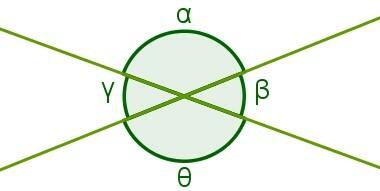O neoliberalism is a socioeconomic doctrine that takes up the old ideals of the classical liberalism by advocating minimal State intervention in the economy, through its withdrawal from the market, which, in theory, would self-regulate and would also regulate the economic order. Its implementation by the governments of several countries began in the 1970s, as the main response to the Oil Crisis.
The neoliberals fight, mainly, the politics of the welfare state, one of the basic precepts of social democracy and one of the instruments used by the Keynesianism to combat the economic crisis that began in 1929. In this policy, the maximum intervention of the State in the economy was proclaimed, strengthening the labor laws and in order to increase the potential of the consumer market, which contributed to the flow of production factories.
The criticism directed by neoliberalism to this system is that the “strong State” is onerous and limits commercial actions, undermining what they call “economic freedom”. In addition, the rise in salaries and the consequent strengthening of union organizations are seen as threats to the economy, as they can increase labor costs and raise rates of inflation. In this way, neoliberals defend the maximum deregulation of the workforce, with a reduction in income and a more flexible production process.
Another basic premise of neoliberalism is the disengagement of the State, that is, the privatizations. In this context, it is argued that the State is a terrible manager and that it only hinders the smooth running of the market laws, which would be managed by the “invisible hand”, previously defended by classical liberalism, and which would work by the law of supply and demand, as well as by the free competition.
In this sense, the role of the State is only to guarantee the basic infrastructure for the proper functioning and flow of the production of goods, as well as the intervention in the economy in times of eventual crises.
Do not stop now... There's more after the advertising ;)
The United States and England were not only the first nations to implement this doctrine, they were also responsible for spreading it around the world. In some cases, such as in Chile, it was imposed by force, through the strengthening of a local dictatorial regime. In other cases, neoliberalism was placed as an alternative to countries that are extremely dependent and with economies in crisis or fragile, such as Brazil.
In the case of Brazil, the 1990s were important for the implementation of neoliberalism, through the privatization of the majority of state-owned companies then in existence, with emphasis on Vale do Rio Doce, Telebrás and Embratel.
In addition to behaving like an economic current, neoliberalism also acts as a social pattern of behavior. Its implementation in association with the Toyotist regime of flexible accumulation advocates the individualization of behavior, especially in the professional field, which is widespread by the conceptions of the entrepreneurship.
For this reason, Neoliberalism is the target of constant criticism, especially for the process of deregulation of the workforce and for the weakening or equipping the union forces, which translated into a gradual decline in labor rights and in the average standard of living of the working class throughout the world.
The most obvious example of this logic, without a doubt, are the so-called Asian Tigers, countries extremely industrialized, but with extremely cheap labor, due to the absence of laws labor. Workers, for example, have virtually no vacation, and benefits are limited, all to attract foreign companies and ensure their respective profits.
Despite the recent economic crisis that began in 2008 and affected, above all, the European Union, the Neoliberalism is the main economic system today, being adopted by most economies current national
By Me. Rodolfo Alves Pena


